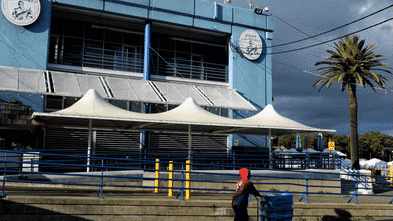Australia’s government has expelled Iranian ambassador Ahmad Sadeghi in response to credible evidence linking the Iranian Revolutionary Guard to anti-Semitic attacks in major cities. The Albanese administration’s decision marks a significant diplomatic action as Sadeghi becomes the first high-ranking diplomat to be expelled from Australia since World War II. This unprecedented move comes amidst growing concerns over Iran’s influence and the safety of the Australian Iranian community.
The Australian Security Intelligence Organisation (ASIO) reported that the Iranian Revolutionary Guard had orchestrated at least two attacks against Jewish institutions in Sydney and Melbourne. Sadeghi was seen leaving the Iranian embassy in Canberra on the morning of the expulsion, signaling the seriousness of the situation.
Local leaders within the Iranian community have expressed their fears of backlash. Kambiz Razmara, vice president of the Australian Iranian Society of Victoria, stated that the Iranian diaspora has been facing increased verbal abuse and intimidation. The community has long requested the expulsion of Sadeghi, particularly since the regime’s crackdown on the women’s rights movement in 2022.
“It is important for people to recognize that we, the Iranian diaspora, are opposed to what happens in Iran,” Razmara emphasized. He pointed out that many members of the diaspora seek freedom, social cohesion, and democracy, making them resolutely against any actions that could tarnish their image.
Iran’s foreign ministry has rejected Australia’s accusations and suggested that the tensions stem from Canberra’s diplomatic stance regarding Israel and its intention to recognize Palestine as a state. This assertion has added another layer of complexity to the already strained relations between the two nations.
In discussing the implications of the expulsion, David Andrews from the National Security College at the Australian National University remarked that the decision is a necessary response to Iran’s destabilizing activities in Australia. He noted that while Australia has previously acted as a diplomatic intermediary for allies without representation in Tehran, the current expulsion could jeopardize that role.
Andrews warned of potential retaliation from Iran, suggesting that individuals with dual citizenship or Australians traveling through Iran could be used as leverage in response to this diplomatic action. “There’s no one who will be rushing to try and repair those ties too actively,” he stated, highlighting the precarious nature of the relationship moving forward.
As events continue to unfold, the Australian government faces the challenge of balancing national security with the need to protect its citizens and diplomatic interests. The Iranian community in Australia remains vigilant, hoping that their voices will be separated from the actions of Tehran, as they continue to advocate for their rights and freedoms.

































































